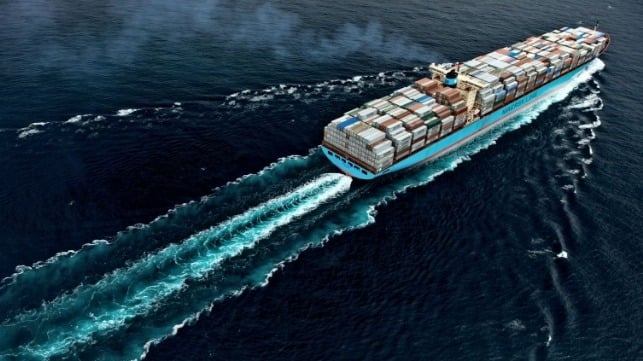Maersk and Hapag Shake Up Container Shipping with New Alliance

Maersk and Hapag-Lloyd surprised the industry by announcing plans to launch a new alliance which immediately raised questions about the future shape of the sector. The second and fifth largest container carriers said they would launch a new alliance called Gemini Cooperation in February 2025 as Maersk ends its cooperation with MSC Mediterranean Shipping and Hapag withdraws from its participation in The Alliance.
The two companies highlighted that it is a long-term operational cooperation and not a change of strategy for either company. Maersk continues to pursue its vision of integrated logistics while Hapag assured customers that its focus remains on shipping. They said the new cooperation will deliver a flexible and interconnected ocean network with a focus on reliability. They are emphasizing improved service quality and transit times and access to a widely connected network of ocean hubs for transshipments.
Maersk announced a year ago that it had agreed to end its cooperation known as 2M with MSC as of January 2025 and both companies have spent the past year positioning their operations. Maersk is integrating major acquisitions for logistics and moving to accelerate decarbonization with the first methanol-fueled containerships, while MSC is rapidly expanding, building new ships and aggressively buying secondhand tonnage.
The Gemini Cooperation will be a large partnership with dedicated staff and a pool of around 290 vessels. It will have a combined capacity of 3.4 million TEU, with Maersk providing 60 percent of the capacity and Hapag 40 percent. It will service seven trades between Asia, the United States, the Middle East, the Mediterranean, North Europe, India, and Transatlantic. The companies said the plan calls for 26 mainline services focused around transshipment hubs and shuttle services.
One of the key focuses will be reliability. They announced what they termed an “ambitious target” to deliver schedule reliability above 90 percent once the network is fully phased into service. Sea-Intelligence, which trades schedule reliability on a monthly basis, has consistently highlighted Maersk as being among the leaders and in November 2023 said the company had 65 percent schedule reliability. Hapag according to Sea-Intelligence has been middle of the pack with a current 54 percent level in November 2023. The current average among the top dozen carriers is 60 percent according to Sea-Intelligence.
Discussing the plans, Maersk CEO Vincent Clerc called Hapag an ideal ocean partner. Previously, Maersk had said it planned to stand alone after ending the MSC alliance. Rolf Habben Jansen, CEO of Hapag, emphasized that by teaming up they would improve quality and make efficiency gains. He told Reuters the move would bring schedule reliability to the next level and was not a move against their partners Ocean Network Express (ONE), Yang Ming, and HMM, which make up The Alliance. Hapag will leave The Alliance at the end of January 2025 at the same time the MSC-Maersk 2M cooperation ends.

that matters most
Get the latest maritime news delivered to your inbox daily.
The surprise announcement is raising questions about the future composition of the container shipping industry. MSC is believed to be going standalone, while the Ocean Alliance continues at this time unchanged. The Alliance loses its largest member, especially raising questions for ONE as the carrier is pursuing its expansion with large new vessel orders.
Shippers have been critical of the cooperations saying that the industry was becoming too concentrated and accusing the three alliances of becoming too powerful. Regulators are focused on the concentration within the container segment with the European Union announcing it was ending an exemption from anti-trust rules for the shipping industry. Concentration of the industry was also cited as one of the driving reasons for the 2022 reform of the U.S.’s Ocean Shipping Act governing the operation of ocean carriers.
